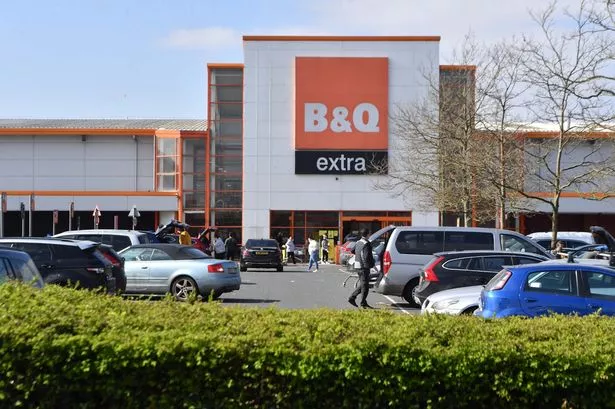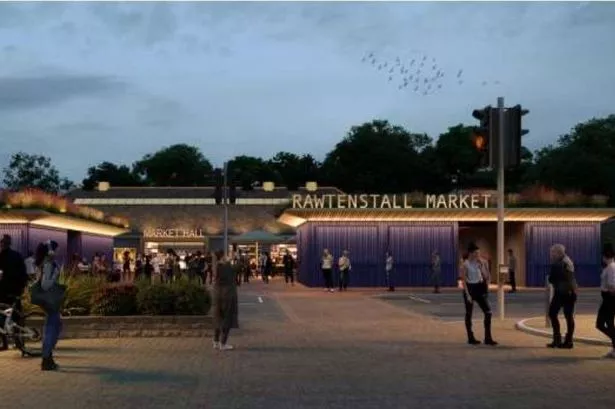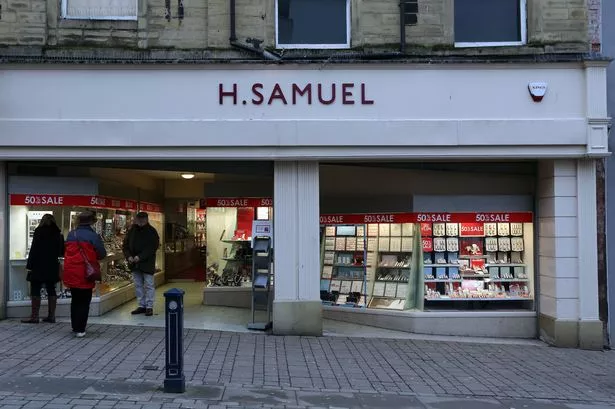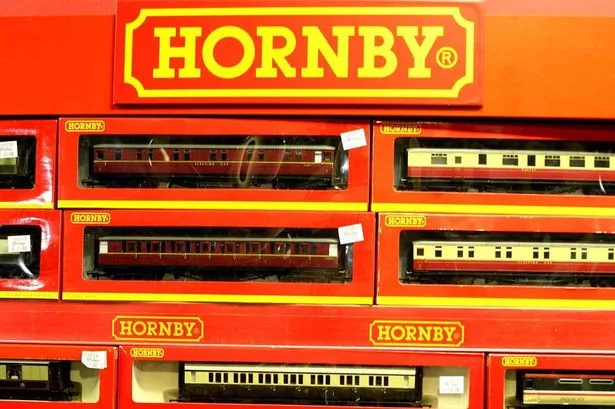
B&Q owner Kingfisher sells off struggling Romanian division in £58m deal
Kingfisher has confirmed that it will sell its Brico Dépôt Romania operation for £58m following the decision to put the business up for sale last year. The deal includes the entire portfolio of 31 Brico Dépôt stores across 24 Romanian cities, encompassing distribution operations and the head office in Bucharest, with completion expected in the first half of the next fiscal year, as reported by City AM. Kingfisher's CEO Thierry Garnier has noted that this sale enables "greater strategic focus on markets and growth initiatives where we are most strongly positioned to deliver attractive returns and create shareholder value". The firm emphasised that there would be "no impact" on the Brico Dépôt brands operating in France, Spain, and Portugal. The divestment comes as the owner of B&Q and Somerset-based Screwfix seeks to streamline its operations after a difficult financial year, during which time they lowered their profit forecast and experienced an approximate eleven per cent decrease in share price over the past month. However, shares have seen an upswing in gains by nearly seven per cent since the start of the year. The Romanian division, which was ushered into the market in 2013 through the acquisition of 15 Bricostore locations, reported sales of £269m—which is about 2.1 per cent of Kingfisher’s total sales—along with a retail loss of £18m and a free cash outflow of £17m last financial year. The buyers, Altex Romania, are a prominent electro-IT retail chain in the country. Dan Ostahie, CEO of Altex Romania, stated: "Altex Romania is confident in the future of Brico Dépôt and is determined to continue serving the community with high-quality products and services."

Temporary site agreed for stall holders amid market revamp
Rossendale Council's cabinet has given the green light to plans to temporarily relocate Rawtenstall Market traders to a town centre site. The move is part of a redevelopment scheme for the indoor market hall and surrounding area. From March, food and non-food vendors will be accommodated in kiosks or other structures at Rawtenstall's new Town Square, near the bus station, for approximately a year. A series of events, alcohol licensing arrangements and promotional activities are planned to support the traders and boost the wider town centre economy during this transition period. Known for its independent food stalls and evening events like 'Foodie Fridays', Rawtenstall Market's revamp is being funded partly by the levelling-up funds granted to Rossendale Council by the previous Conservative government. This week, the council's cabinet approved several measures, including the relocation of some retail kiosks from Ashton Market in Greater Manchester to Rawtenstall Town Square, following an agreement with Tameside Council. Work on this project is set to commence this month. An allocation of £100,000 has been set aside for this task, which includes the dismantling of four Ashton kiosks, transportation and crane hire. Each kiosk will cost between £5,000 and £7,000. In addition, specially designed food stalls equipped with fume extraction units, refrigeration, lighting and utilities will be provided for food traders, reports Lancs Live. The entire temporary relocation scheme for all traders has been assigned a budget of £500,000. Labour Cllr Chris Harris outlined plans at the latest Rossendale Council cabinet meeting. He said the proposed temporary stalls would offer a secure environment for traders during renovations at the market hall, ensuring trade continuity and bolstering the local economy. He stated: "These recommendations are about the next steps to take the market to a temporary position in the Town Square for about one year. There have been meetings with market traders and council officers to consider things. One outstanding issue is the appointment of a new market management team because the current one is ending around March. " Last autumn, it was revealed that Rossendale-based Play Market Management will conclude its current management of Rawtenstall Market. This followed a period of controversy over potential future ideas to relocate food-and-drink stalls from outside to inside the market hall, and possibly create a new central bar. Some food-and-drinks stallholders expressed concerns that creating a central bar would impact their incomes. At the cabinet, Cllr Harris added: "The council is able to buy at scrappage prices some stalls for retail traders. We are still to do more work on food stall details. Overall, there will be a phase transfer of traders to the town square to minimise disruption." Plans to increase visitor numbers through events, marketing and promotion are being put in place, according to council plans. A premises licence will also be introduced, allowing for the sale of alcohol and hosting of events. Market traders will receive a minimum of one month rent-free from the opening of the temporary market and will be charged 80 per cent of current rents. Agreements on utility charges and waste removal will also be established. Cllr Alyson Barnes, the leader of Rossendale Council, said: "There are almost 50 businesses at the market so it's very important we provide the temporary accommodation. From what I have read and understand, traders are happy with these ideas."

H Samuel and Ernest Jones owner cuts loss despite £40m sales hit
The firm behind high street jewellers H Samuel and Ernest Jones has managed to significantly reduce its losses, despite witnessing a nearly £40m drop in sales during its most recent financial year. The Birmingham-based business reported a pre-tax loss of £483,000 for the year ending 3 February, 2024, a substantial decrease from the £8.9m loss it recorded in the previous 12 months. According to accounts recently filed with Companies House, the company's turnover also fell from £384.1m to £344.6m over the same period. H Samuel and Ernest Jones are part of Signet Jewelers, a group domiciled in Bermuda and headquartered in the US, which is also listed on the New York Stock Exchange, as reported by City AM. In addition to H Samuel and Ernest Jones, Signet Jewelers owns brands such as Blue Nile, Zales, Kay Jewelers, Jared and JamesAllen.com. H Samuel was established in 1862 in Liverpool, while Ernest Jones traces its origins back to 1949 in London. Over the course of the year, the average number of employees at the company behind H Samuel and Ernest Jones decreased from 2,186 to 2,043. A statement approved by the board read: "Sales were impacted by the rising cost of living in the UK which is expected to continue in the medium term." It added: "The company’s strategy remains to grow the business through continued investment in its stores and website and driving its strategic imperatives." "During the year, the company made the decision to focus on the core strategy of selling diamonds, jewellery and watches and in October 2023 entered into an agreement to sell the operations and certain assets of its prestige watch business. The sale was substantially completed in the fourth quarter." "Despite the reduction in sales, in line with expectations the resulting underlying group operating loss, excluding the exceptional profit on the sale of the previously mentioned prestige watch operations, was broadly in line with the prior year at £8.6m, reflecting tight control of overheads and strategic initiatives." The results follow Beaverbrooks, a rival to H Samuel and Ernest Jones, reporting a significant cut in profit despite another year of record sales. The family-owned retailer reported an operating profit of £10.5m for the year ending February 2024, a decrease from the £25.7m it achieved in the previous 12 months.

Vitamin giant Vitabiotics sees sales jump towards £200m as profits swell
Vitabiotics, the vitamin giant led by former Dragons’ Den star Tej Lalvani, has seen a surge in sales towards the £200m mark during its latest financial year, with profits also on the rise. The London-based firm reported sales of £196.4m for 2023, according to accounts filed with Companies House well past the 30 September deadline. This is an increase from the previous turnover of £174.2m in 2022. In the UK, Vitabiotics’ sales rose from £65.8m to £78.1m and from £108.4m to £118.3m internationally, as reported by City AM. The results also reveal that the company’s pre-tax profit increased from £50.4m to £55.2m over the 12 months. Vitabiotics' accounts for 2024 are expected to be filed with Companies House by the end of September 2025. The company was established in 1971 by Kartar Lalvani and is currently managed by his son, Tej Lalvani, who featured on Dragons’ Den from 2017 to 2021. A statement approved by the board said: "The company’s overall sales figure of £196.5m reflects an impressive growth of 13 per cent in 2023." "UK national accounts sales delivered a substantial growth of 18 per cent, representing incremental sales of £12.4m, despite the company’s existing high share of the VMS [vitamins, minerals and supplements] market in the UK and the cost-of-living crisis." "The positive trend towards online sales continued strongly, with a growth in e-commerce sales of 37 per cent." "This helped to deliver a final UK turnover [of] £78.2m and the company maintained its position as the largest UK vitamin company by value sales." "Performance in key export markets remained strong, driven by exceptional growth in the Middle East and Asia, achieving a final export turnover of over £118.3m." "In Europe, Ukraine achieved a remarkable and commendable 84 per cent growth despite the devastating situation on the ground." "China [became] the company’s biggest overall export market with a growth of 33 per cent despite economic challenges in the region." "Market rollouts continued in 2023, notably with Wellman Conception Max, as well as the new launch of Pefectil Biotherpy Oil, an exciting development in the UK’s leading beauty supplement brand to expand into topical skincare."

Massive job cuts and store closures expected in UK retail as economic pressures mount
Over 200,000 retail jobs and more than 17,000 stores are predicted to vanish next year as the sector's decade-long crisis persists, warns a leading retail body. The Centre for Retail Research (CRR) attributes this ongoing issue to online shopping, lingering effects of Covid-19, and high taxes, exacerbating a problem that originated with the financial crisis in 2008. With many consumers out of the habit of high street shopping, shops have been grappling with a dearth of in-store customers. Even by early 2023, customer footfall was 10 per cent lower than in 2019, and even less in major cities, as reported by City AM. Brits have instead opted for experiences such as dining out, city breaks, gym memberships and TV channel subscriptions, leaving less disposable income for shopping. Approximately 85,000 shops have shut down in the past six years, according to the CRR. The British Retail Consortium (BRC) anticipates retail costs to surge by £7bn across the industry next year due to a combination of the minimum wage increase, the packaging levy and higher national insurance costs. "Businesses now face tough decisions: do they absorb the costs, pass them on through higher prices, or find other ways to cut back? ," posed retail economist Tim Black. "In retail and hospitality, the challenge is especially tough... there’s no real room to absorb higher costs," Black added. However, Benjamin Wiles, managing director of restructuring at Kroll, has stated that the outlook for next year remains "still uncertain". He suggests that increased costs for firms could be partly offset by stronger consumer finances as wages continue to rise. On the other hand, retail experts argue that if retailers are forced to increase their prices due to higher costs, the benefits of wage increases will be nullified. Business rates are also set to rise next year. Although Labour has pledged to overhaul the entire system in 2026, there are fears that this may be too late for many businesses. Alex Baldock, CEO of electrical retailer Currys, commented: "The rates relief proposed so far isn’t just too little, too late, but will actually leave many retailers worse off." He added that as much as one-quarter of the entire business rates total now comes from the retail sector. The CRR noted: "Rents paid by shops have been declining as stores close and new occupants become difficult to find [but] the decline in rents has not led to a fall in business rates," It further stated: "Online retailers of course pay business rates at the reduced levels applicable to warehouses... a satisfactory future for high streets will only occur if online retailers pay the same rates as store-based retailers."

Hornby reports surge in Christmas sales under Mike Ashley's advisory role
International toy company Hornby, backed by billionaire Frasers Group founder Mike Ashley, has seen a boost in sales owing to a successful festive season and attracting new customers. The models and collectables group notified the markets today of a seven per cent rise in group sales for the third quarter ending on 31 December, as reported by City AM. Sales for the financial year have increased by eight per cent, and there has been a notable 10 per cent jump in gross profits. Hornby attributes this positive development to a "strong programme" of Black Friday and Christmas promotions, leading to a 23 per cent increase in revenue and a staggering 38 per cent growth in gross profit over the previous year. This comes amid a generally challenging festive period for other high street retailers; data from the British Retail Consortium indicates a 1.5 per cent decrease in non-food sales in the UK during this year's key trading quarter. Hornby's Chief executive Olly Raeburn commented: "In a tough economic climate, we are pleased to be able to report growth in revenue, margins and gross profits through this critical quarter. " He added: "Concurrently we are continuing to drive down the inventory levels that had built up in recent years and are delivering our change plans in a steady and sustainable way." Mike Ashley's role at Hornby further underscores the firm's strategic direction, given his vast experience as the founder of Frasers Group Plc. Retail magnate Mike Ashley took on a consultancy post at Hornby in March, following a significant increase in his stake in the model railway maker the previous month. The mogul behind brands like Sports Direct and House of Fraser secured upwards of 11 million shares in the Kent-based firm, uplifting his total holding to over 15 million, or an 8.9% interest. Later that year, in a financial report to the London Stock Exchange, Hornby disclosed a favorable trading period from 1 April to 31 August, 2024, with sales and gross profit climbing by 10% compared to the corresponding timeframe in 2023. The company's prospects for the fiscal year concluding in March 2025 are promising, with Hornby today announcing its trajectory "on track for year-on-year growth," whilst it maintains focus on various ongoing business recovery initiatives.